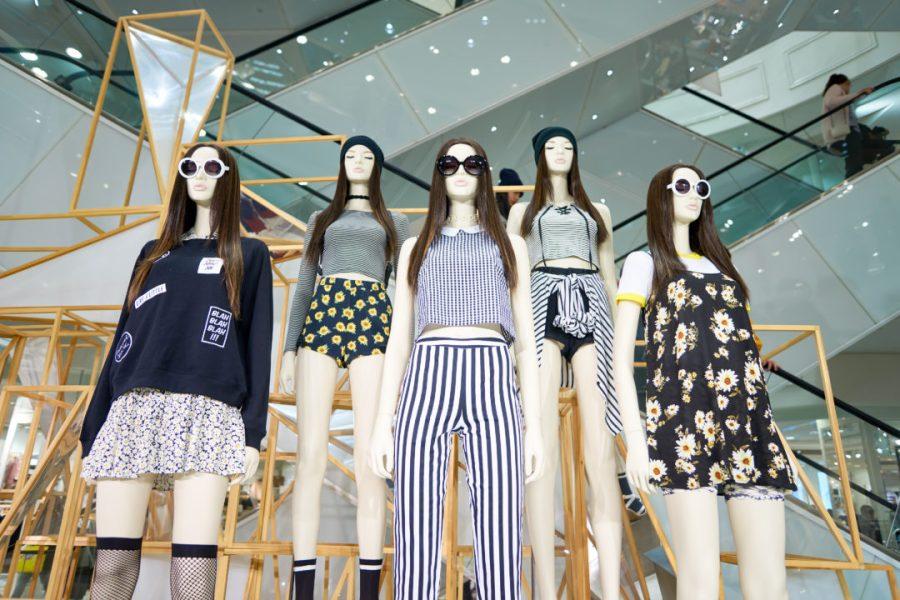Social media influencer culture has slowly become one of the most pervasive forms of advertisement. There are multiple perspectives that one can take when analyzing the complexities of influencer culture. While they are all valid, one perspective that seems to go unnoticed is how influencer culture promotes unsustainability and unethical consumption.
Beauty influencers depend solely on thriving consumer culture, saturating their feeds with yet another variation of the chunky sneakers and eyebrow gel. Their Instagram stories feature unboxing hauls of free clothes and makeup gifted to them by start-up brands, followed by a discount code with their names. I’ll admit, these girls are killing it and securing the bag along the way, but their livelihoods often depend on advertising useless or harmful products to an unsuspecting audience.
The fast fashion industry is bolstered by a growing influencer culture, in which social media celebrities collaborate with big fast fashion companies as “brand ambassadors” to somehow seamlessly intertwine these brands into their everyday lives. These fast fashion brands provide accessible garments, and with the help of online shopping, consumption is even easier. As a result, clothing production has doubled between 2000-2014, and the number of garments the average consumer purchases a year has increased by 60 percent. People want their clothing cheap and trendy, and they want it quick.
However, trends die quickly and with that comes waste. Clothing produced by fast fashion brands are oftentimes made from cheap materials, like polyester and acrylic, and not built to last: The average American throws away 80 pounds of clothing every year. We’ve been conditioned to believe that buying a garment and wearing it once is justifiable. It’s not. Due to the growing demand in the fast fashion industry, we see a vast overproduction of clothing; for example, the Copenhagen Fashion Summit reports that fashion is responsible for 92 million tons of solid waste dumped in landfills each year. This cultural shift on how we consume clothing is leaving a huge mark on the planet.
The one mark that attracts consumers to fast fashion is its affordability. It should concern consumers, though, just how a garment can be that cheap. There are ethical implications with affordability. The majority of these garments are produced in countries like China, India, and Bangladesh, where workers undergo extremely poor work conditions. Over 50 percent of clothing manufacture workers are not paid minimum wage, and when they are, men are more likely to be paid minimum wage over women and children. Work conditions in sweatshops are destitute, and workers are exposed to high chances of injury and mistreatment. Think twice before falling for the affordable price tags.
Now, where do social media influencers come into play here? Fast fashion brands work with fashion Instagrammers to promote their brands. As a result, these influencers’ feeds are saturated with posts featuring cheap, trendy clothing. Cheap, trendy clothing that they want you to buy. They normalize the idea that one should own hundreds of garments and that “outfit repeating” is a cardinal sin. This is the main issue: normalization. It has become normal to boast about monthly shopping “hauls.” It has become normal to throw away a garment because it ripped after being worn once. When looking at the environmental and ethical consequences, this is far from normal.
Luckily, there are alternative solutions that one can partake in to become a more conscious consumer. One such alternative is thrift shopping. Try hitting up Friends Resale Shop, our very own campus thrift store, to find affordable and sustainable clothing. UC San Diego students can join multiple clothing resale pages on Facebook to buy and sell clothing from other students. There is also a growing flux of environmentally-conscious brands like Patagonia and Everlane that promote a transparent supply chain and ethical sourcing, along with using recycled soda bottles and other recycled materials to produce their fabrics. Sustainable consumption comes with knowledge and awareness. Put simply, though, just buy less and buy smart.








